发扬无产阶级国际主义精神!缅怀伊莎白·柯鲁克革命的、战斗的一生
发扬无产阶级国际主义精神!缅怀伊莎白·柯鲁克
革命的、战斗的一生
无套裤汉2023-08-29
https://blog.creaders.net/user_blog_diary.php?did=NDY5Mzky
Isabel Crook, 107, Dies; Her Life in China Spanned a Century of Change
A noted educator and anthropologist, she spent almost her entire life in China, where she was a committed friend of the Communist government.
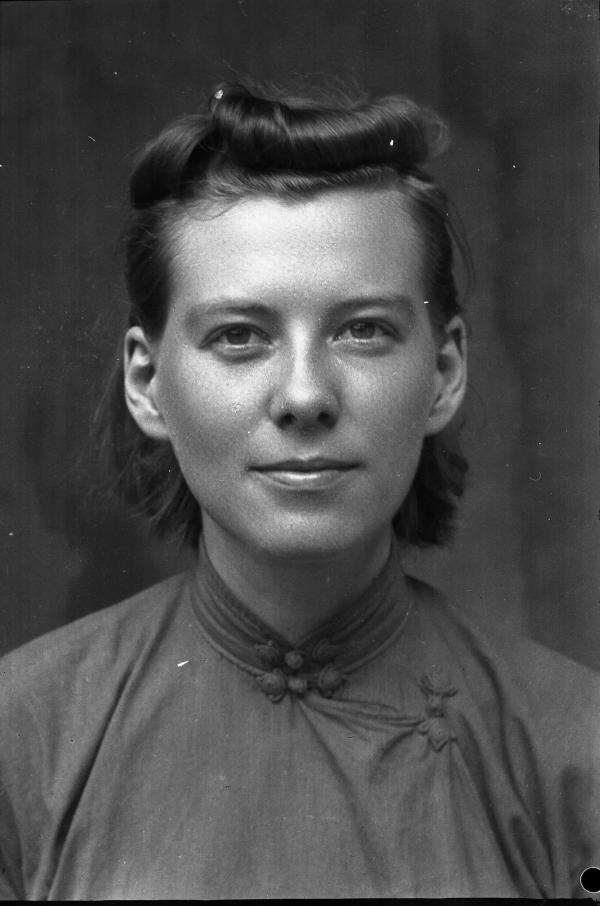
Isabel Crook in 1940, when she was Isabel Brown. Her life in China spanned the Japanese invasion and World War II, as well as the subsequent Communist revolution.Credit...via Crook family
By Clay Risen
Aug. 25, 2023
Isabel Crook, a China-born daughter of Canadian missionaries who became one of her adopted country’s most celebrated foreign residents, beloved as an educator, anthropologist and articulate advocate for the Communist state, died on Sunday in Beijing. She was 107.
Her son Carl Crook said the cause of death, in a hospital, was pneumonia.
Mrs. Crook was among the last of a generation of Westerners born to missionaries in China in the decades before the Japanese invasion, World War II and the subsequent Communist revolution.
The experience defined them. Some, like Henry Luce, the publisher of Time and Life, became ardent anti-Communists. But others, including Mrs. Crook, perceived the Communists as saviors who were lifting the country out of colonial squalor. (Still others, like the American diplomat John Paton Davies, made famous as a target of McCarthy-era attacks, fell somewhere in between.)
As an anthropologist, Mrs. Crook saw herself as an observer of social change; as a Communist, she saw herself as an agent of it.
After returning to China from college in Toronto in 1939, she conducted field work among the impoverished, isolated villages of western Sichuan Province, traveling through ravines and mountain passes by foot, mule-cart and even zip line.
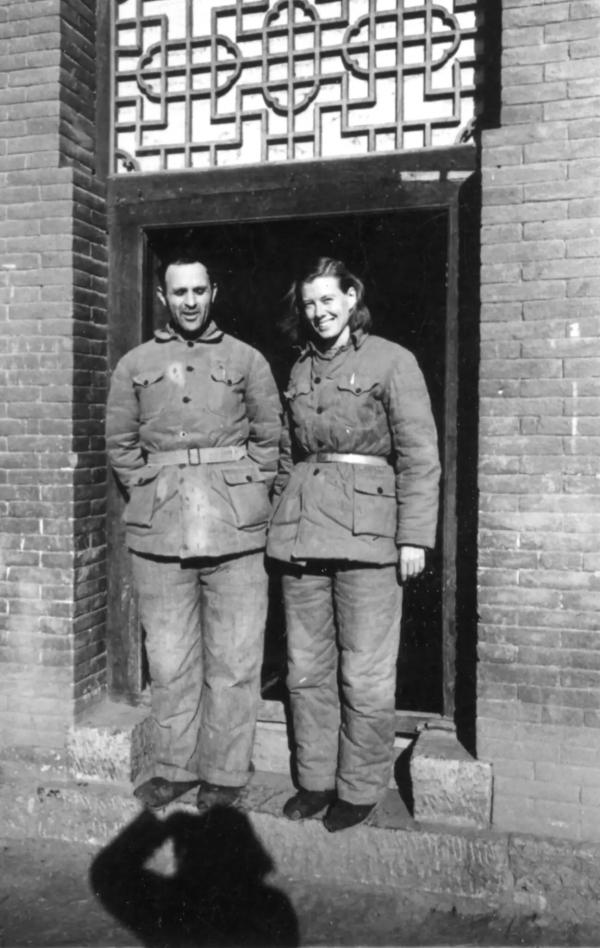
Mrs. Crook with her husband, David, in about 1947, when they taught English in villages and towns controlled by the Communist Party during China’s civil war.Credit...via Crook family
She met her future husband, David Crook, in China. A dedicated British Communist, he had fought against the fascists during the Spanish Civil War while also working as a spy for the Soviet NKVD, a precursor to the KGB. When the fighting ended, the NKVD sent him to perform similar work in China.
After World War II began, the couple moved to Britain, where David joined the Royal Air Force. Isabel worked in a munitions factory and joined the Communist Party. They married in 1942.
The Crooks returned to China in 1947 to teach English in the villages and towns controlled by the Chinese Communist Party during the country’s civil war. They were among the few Westerners to accompany the columns of Communists during their victorious entry into Beijing in 1949, marking the founding of the new state.
The Crooks became true believers in Chinese communism. They were on the founding faculty of what became the Beijing Foreign Studies University, where they helped train several generations of Chinese diplomats.
They wrote two books together based on their years spent among Chinese villagers: “Revolution in a Chinese Village: Ten Mile Inn” (1959) and “The First Years of Yangyi Commune” (1966).
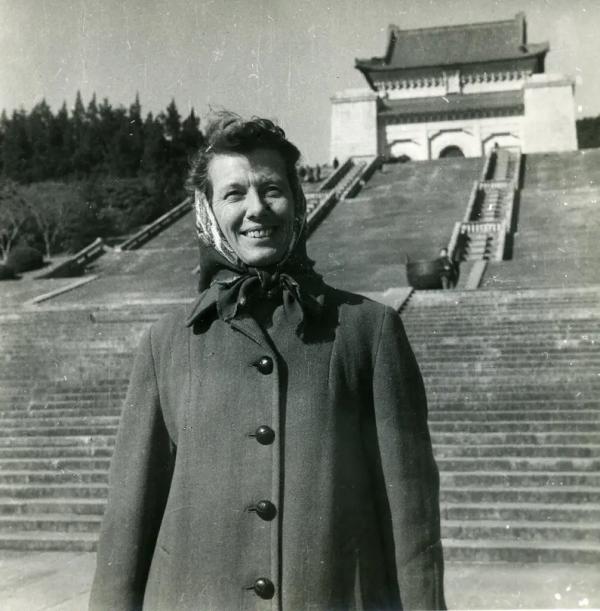
Isabel Crook in 1963 outside the tomb of the revolutionary statesman Sun Yat-sen in Nanjing, China.Credit...via Crook family
Both books have become classics in the field of Chinese ethnography, thanks to their analysis of how world-historical changes like the Communist revolution affected everyday rural life.
Unlike other Westerners, the Crooks chose to live on campus, alongside their students and fellow faculty members. They wore simple sackcloth outfits, like their neighbors. No one called Mrs. Crook “professor”; she was always “Comrade Isabel.”
Their faith remained unshaken even after David was charged with espionage and imprisoned between 1967 and 1973, at the height of the Cultural Revolution. Mrs. Crook insisted he was innocent, but her defense backfired, and she was kept under house arrest for several years.
The two were released in 1973 and rehabilitated by Premier Zhou Enlai. They later said they forgave the Chinese government for its excesses.
Mrs. Crook’s most recent book, and her most significant, published in 2013, is “Prosperity’s Predicament: Identity, Reform, and Resistance in Rural Wartime China (1940-1941),” which is based on her prewar field notes and was written with Christina Gilmartin and Yu Xiji.
One of its editors, Gail Hershatter, a history professor at the University of California-Santa Cruz, said the book offers a unique look at a rural society that even in China, with its rapid urbanization, seems to many like a foreign country.
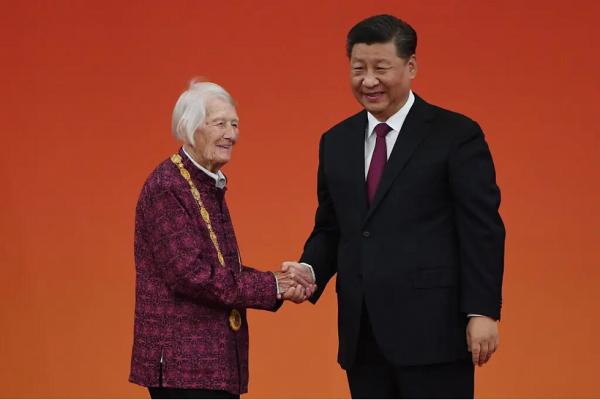
Mrs. Crook with President Xi Jinping in 2019, when he awarded her the Friendship Medal of China, the country’s highest honor bestowed on a foreigner.Credit...Greg Baker/POOL, via Agence France-Presse — Getty Images
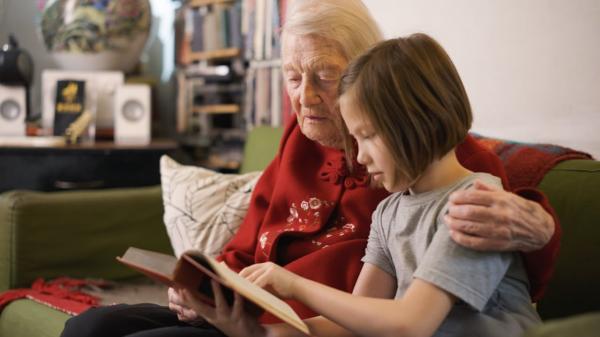
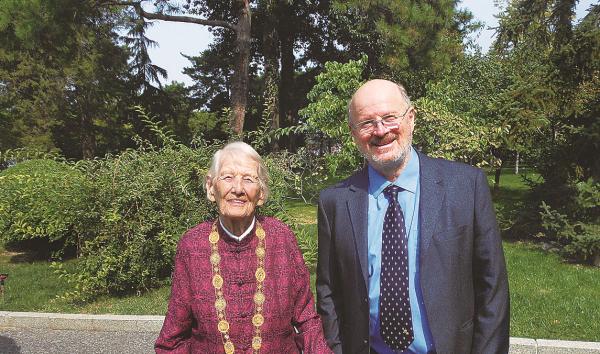
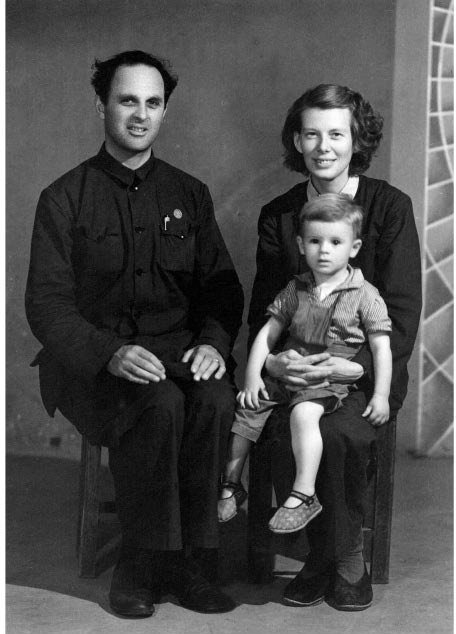
“She maintained a lifelong interest in what’s happening outside the major cities, beyond the view of historians and the people that keep the written record,” Dr. Hershatter said in a phone interview. “She had a good instinct for what’s interesting, and what about daily life is really worth writing down.”
Isabel Joy Brown was born on Dec. 15, 1915, in Chengdu, the capital of Sichuan. Her parents, Homer and Muriel (Hockey) Brown, were Methodist missionaries from Canada who worked in the country’s schools and universities.
She graduated from the University of Toronto with a degree in anthropology in 1939. While living in wartime Britain she pursued a doctorate in the same subject at the London School of Economics but did not complete it.
In addition to her son Carl, she is survived by two other sons, Michael and Paul; her sister, Julia Baker; six grandchildren; and nine great-grandchildren. David Crook died in 2000 at 90.
Though Mrs. Crook remained committed to the vision of the Chinese Revolution, she did not shrink from criticizing the government, especially after she retired from teaching in 1981.
She and her husband were enthralled by the protests around Tiananmen Square in 1989, and appalled by the government’s subsequent crackdown, killing hundreds, if not thousands, of people.
But her occasional criticism did not keep the Chinese government, and the Chinese people, from bestowing her with accolades. In 2019, President Xi Jinping awarded her the Friendship Medal of China, the country’s highest honor available to a foreigner.
Clay Risen is an obituaries reporter for The Times. Previously, he was a senior editor on the Politics desk and a deputy op-ed editor on the Opinion desk. He is the author, most recently, of “American Rye: A Guide to the Nation’s Original Spirit.” More about Clay Risen
A version of this article appears in print on Aug. 27, 2023, Section A, Page 25 of the New York edition with the headline: Isabel Crook, 107, Witness to a Century of Change in China, Dies. Order Reprints | Today’s Paper | Subscribe
*
伊莎白·柯鲁克(英语:Isabel Crook,1915年12月15日—2023年8月20日)是英属加籍社会人类学家、教授、教育家,也是中华人民共和国的国际友人,国际共产主义战士,以及新中国英语教学事业的拓荒者。 出生于成都,旧姓布朗,曾用中文名饶素梅。
现在,虽然革命社会主义的伟大事业处于暂时退潮时期,但是后代人必将取法他们先贤们的战斗表率,不屈不挠地战斗到底,直到无产阶级的人民民主革命专政取得最终胜利![Mark Wain 2023-08-29]
附:汉语版
伊莎白·柯鲁克去世:中共忠实信徒,“友谊勋章”获得者
CLAY RISEN
2023年8月29日
https://cn.nytimes.com/obits/20230829/isabel-crook-dead/
伊莎白·柯鲁克,摄于1940年,当时的名字是伊莎白·布朗。她在中国的生活经历了日本侵华、第二次世界大战以及随后的共产主义革命。 VIA CROOK FAMILY
伊莎白·柯鲁克周日在北京去世,享年107岁。她出生于中国,父亲是一名加拿大传教士。她后来成为自己所移居的这个国家最著名的外国人之一,作为教育家、人类学家和这个共产主义国家的有力拥护者而深受爱戴。
她的儿子卡尔·柯鲁克说,她因肺炎在医院去世。
在日本侵华、第二次世界大战和随后的共产主义革命之前的几十年里,柯鲁克是中国出生于传教士家庭的最后一代西方人。
这段经历定义了他们的命运。有些人,比如《时代》(Time)和《生活》(Life)的出版人亨利·卢斯成为了坚定的反共主义者。但包括柯鲁克在内的一些人则将共产党视作拯救者,认为共产党让国家摆脱了殖民统治的悲惨。(还有一些人则介于两者之间,比如美国外交官约翰·帕顿·戴维斯,他因在麦卡锡时代成为攻击目标而闻名。)
作为一名人类学家,柯鲁克自视为社会变革的观察者;作为一名共产主义者,她认为自己是变革的推动者。
1939年从多伦多大学毕业后,她回到中国,在四川西部贫困偏僻的村庄以徒步或者骡车方式进行实地考察,有时甚至是借助滑索穿越沟壑和山口。
伊莎白·柯鲁克与丈夫大卫,摄于1947年前后,他们当时在大后方的乡镇教授英语。 VIA CROOK FAMILY
在中国,她遇到了未来的丈夫大卫·柯鲁克。作为一名忠诚的英国共产党人,他在西班牙内战期间与法西斯作战,同时还为苏联内务人民委员部(克格勃的前身)担任间谍。战斗结束后,该部派他到中国从事类似的工作。
第二次世界大战开始后,这对夫妇搬到英国,大卫加入了英国皇家空军。伊莎白在一家军工厂工作,并加入了共产党。两人于1942年结婚。
1947年,柯鲁克夫妇回到中国,在中国内战期间,他们在大后方的乡镇教授英语。1949年,共产党胜利进入北京,标志着新中国的建立,他们是为数不多陪同共产党的军队进入北京的西方人士之一。
柯鲁克夫妇成为了中共的忠实信徒。他们是后来北京外国语大学的创始教员,在那里,他们帮助培养了几代中国外交官。
他们根据自己在中国农村度过的岁月,共同写了两本书:《十里店:中国一个村庄的革命》[Revolution in a Chinese Village: Ten Mile Inn(1959)]和《阳邑公社的头几年》[The First Years of Yangyi Commune(1966)]。
1963年,伊莎白·柯鲁克在中国南京的中山陵留影,这里埋葬着革命政治家孙中山。 VIA CROOK FAMILY
这两本书分析了共产主义革命等世界历史变化对农村日常生活的影响,成为了中国民族志领域的经典之作。
与其他西方人不同,柯鲁克夫妇选择住在校园,与他们的学生和其他教职员工住在一起。他们穿着简单的粗布衣服,就像他们的邻居一样。没有人称柯鲁克夫人为“教授”;她始终是“伊莎白同志”。
即使在1967年至1973年“文革”最激烈的时候,大卫被控间谍罪入狱,他们的信仰也没有动摇。柯鲁克夫人坚称他是无辜的,但她的辩护适得其反,自己反而被软禁数年。
他们于1973年获释,得到总理周恩来的平反。他们后来表示,愿意原谅中国政府的过激行为。
柯鲁克于2013年出版了她最后也是最重要的著作《兴隆场:抗战时期四川农民生活调查,1940-1941》[Prosperity’s Predicament: Identity, Reform, and Resistance in Rural Wartime China (1940-1941)],该书基于她在战前的田野调查笔记,由柯临清(Christina Gilmartin)和俞锡玑整理撰写。
作为该书编辑之一,加州大学圣克鲁斯分校历史学教授贺萧(Gail Hershatter)表示,这部作品以独特视角审视了农村社会,即便在中国,由于城市化进程迅猛,农村在许多人眼里似乎也成了异邦。
2019年,柯鲁克与习近平合影,习近平授予她中国的友谊勋章,这是中国向外籍人士颁发的最高荣誉。 GREG BAKER/POOL, VIA AGENCE FRANCE-PRESSE — GETTY IMAGES
1939年,她从多伦多大学毕业,获得人类学学位。在战时的英国生活期间,她在伦敦政治经济学院攻读人类学博士学位,但没有完成学业。
除了儿子卡尔,她身后还留下两个儿子迈克尔和保罗;她的妹妹朱莉娅·贝克;六名孙辈以及九名曾孙辈。大卫·柯鲁克已于2000年去世,享年90岁。
尽管仍致力于实现中国革命的愿景,柯鲁克没有回避对政府的批评,特别是在1981年从教职退休以后。
她与丈夫对1989年天安门广场周边的抗议全情投入,并对随后导致数百乃至数千人丧生的政府镇压行动震惊不已。
但她偶尔的批评并没有影响中国政府和中国人民给予她赞誉。2019年,习近平主席授予她中国友谊勋章,这是中国向外籍人士颁发的最高荣誉。
Clay Risen是时报一名讣告记者。他此前是政治版资深编辑,也是观点版面副观点文章编辑。他近期著有《American Rye: A Guide to the Nation’s Original Spirit》一书。点击查看更多关于他的信息。
翻译:纽约时报中文网
回复
Salute!
Anticipate the coming of the next generation of Isabel Crook's.
leeliang
中国农民革命运动非常需要努力学习和发扬伊莎白?柯鲁克的无产阶级共产国际主义精神,克服和抵制狭隘民族主义、民族利己主义!
